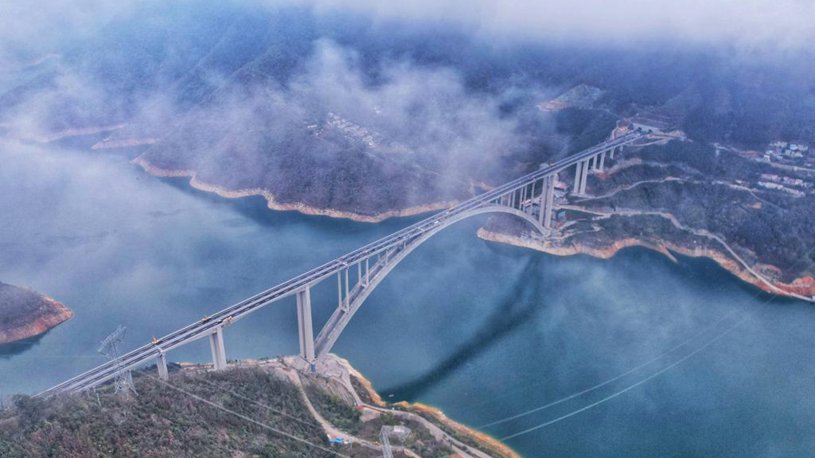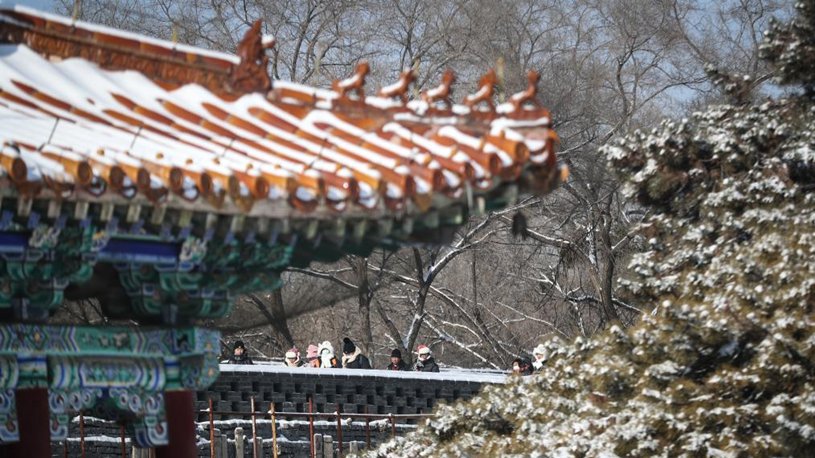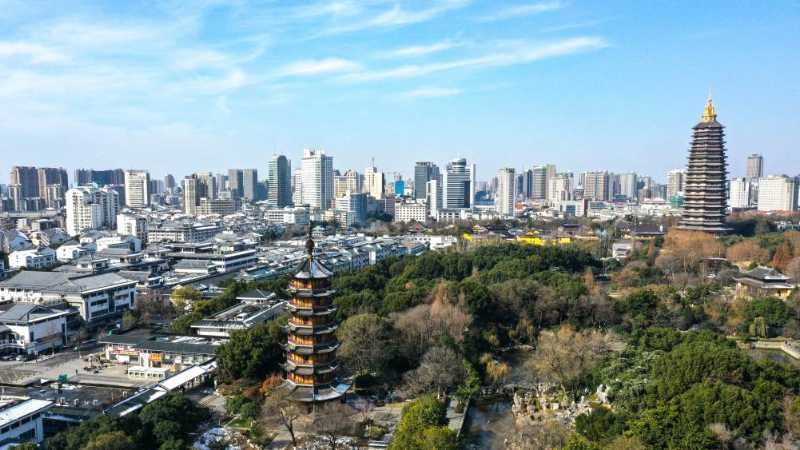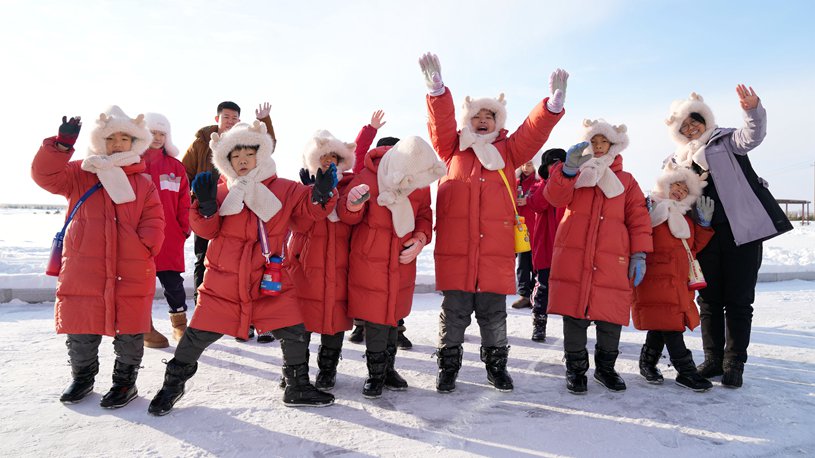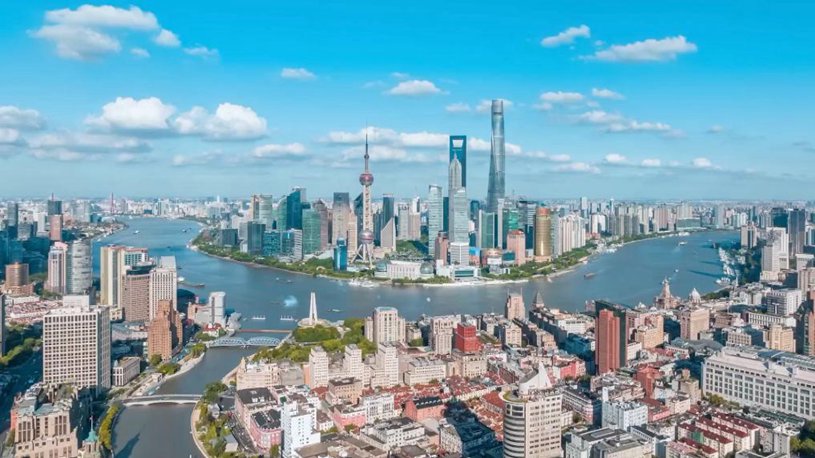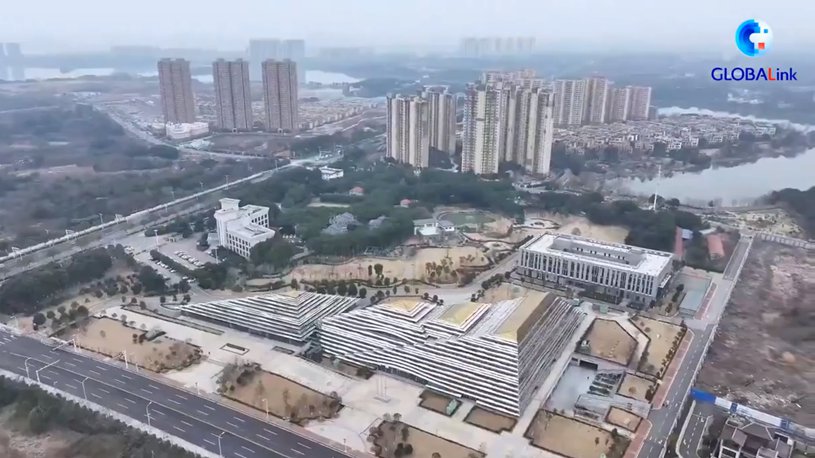URUMQI, Feb. 2 (Xinhua) -- Foreign diplomatic envoys, representatives from international organizations, overseas Chinese and personages from China's Hong Kong and Macao, who have been invited to sit in on the "two sessions" of northwest China's Xinjiang Uygur Autonomous Region, have commended the region's rapid economic and social development.
For the first time, foreign guests and media have been invited to sit in on or cover the annual meetings of Xinjiang's lawmakers and political advisors, during which plans for local economic and social development in the year ahead are discussed.
The annual session of the regional people's congress opened on Tuesday, and the annual session of the regional committee of the Chinese People's Political Consultative Conference opened on Monday.
According to the regional government work report released during the annual session of the Xinjiang people's congress, the region achieved a regional gross domestic product (GDP) growth of 6.8 percent in 2023.
Sohail Khan, deputy secretary general of the Secretariat of the Shanghai Cooperation Organization, said that through the meetings, he has learned many development plans of Xinjiang in various areas, such as agriculture and economy and trade.
Khan said the invitation for the meetings offered a good opportunity for foreigners to learn about how things are being done here responsibly by the Communist Party of China and the Chinese government.
During the "two sessions", Khan visited several places in Urumqi, the region's capital. While visiting an archives center showcasing a rebuilding program of an old town, he witnessed the huge transformation of the former run-down urban areas into modern residential communities over the years.
People of all ethnic groups now have access to modern housing facilities, which demonstrates the Chinese government's responsible commitment to the people, Khan said.
Last year, the region's import and export volume grew by 45.9 percent, while the per capita disposable income of urban and rural residents increased by 5.6 percent and 8.4 percent, respectively.
Hu Yumei, president of the Central Asia Overseas Chinese Friendly Association of Kyrgyzstan, sat in on the meetings and said that she is very glad to hear the encouraging data. Various undertakings in Xinjiang have undergone rapid and remarkable changes, especially in terms of economic development, she said.
Maliya Huopuer, an Uzbek official, focused on topics of cooperation in culture, tourism and education, and people-to-people exchanges among Belt and Road Initiative participating countries. During a break between meetings, she engaged in discussions with others on how to better serve as a bridge for exchanges between Uzbekistan and China.
In 2023, Xinjiang's tourism industry has achieved rapid growth, with the region receiving 265 million visitors, a remarkable 117 percent growth, setting a historical record, according to the regional government work report.
The tourism revenue of the region totaled 296.7 billion yuan (about 41.76 billion U.S. dollars), up 227 percent, while the airport passenger throughput exceeded 40 million for the first time, an increase of 143.8 percent compared to the previous year.
Wang Xihua, chairman of Xinjiang Association of Hong Kong, said that, although he lives in Hong Kong, he pays great attention to Xinjiang's development.
"The development achievements in Xinjiang inspire me, and I will bring the spirit of the meetings back to Hong Kong," he said, adding that he expects to forge a bridge between Hong Kong and Xinjiang to contribute to the high-quality development of Xinjiang and help Hong Kong to integrate into the overall development of the country.
Bilal Mahmood Chaudhary, deputy chief of Mission of the Embassy of Pakistan in Beijing, said that he is interested in relevant policies on opening up in Xinjiang, adding he will introduce those policies to more Pakistani companies and promote cooperation in various fields between the two sides. ■

